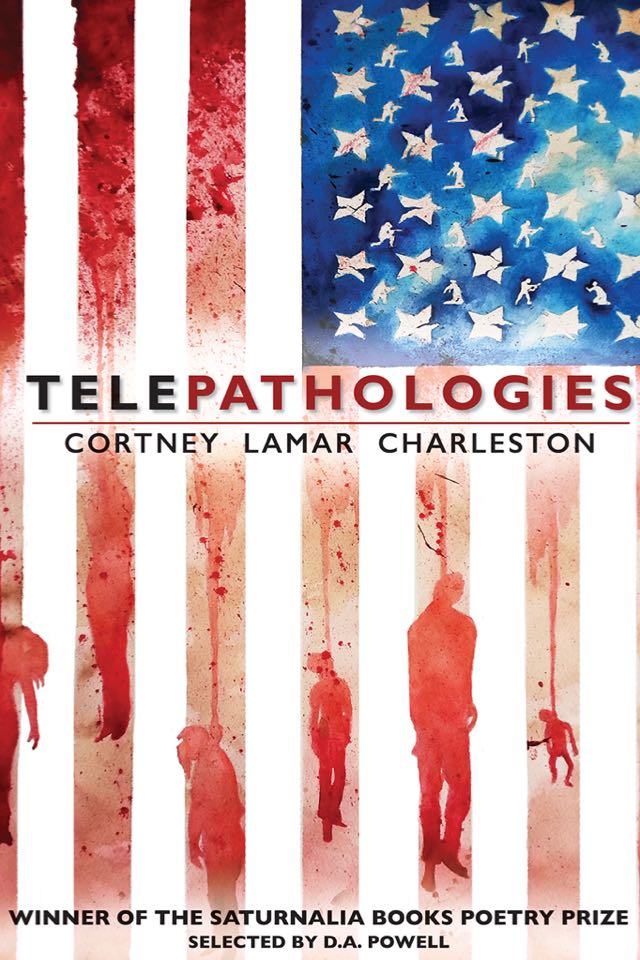Telepathologies
— Xandria Phillips
Cortney Lamar Charleston creates a world where reconciliation is the only option, or rather the dead do not depart from this earth quietly. In Telepathologies we learn that language is both a means to death, and an instrument of the dead.
The poem ‘Spell Check Questions the Validity of Black Life’ elaborates upon the way Eurocentricity permeates communication.
[Trayvon] Martin: did you mean traction?
Yes, in the way that lynching, the first
quintessential American Sport, has regained its
footing among a younger generation—no robes
worn, no fouls given, not a whistle to blow.
* * *
[Kimani] Gray: did you mean kimono?
I did indeed, if ignorance is a kind of silk.
* * *
[Tamir] Rice: did you mean tamer?
As in not twelve years old, but eleven? Ten? Nine?
Would that have been tame enough?
With the un-knowlege and erasure his poem demonstrates, Charleston does not render Spell Check with unrealistic power. We as Black people know that conflation can easily be the death of us. His banter against the red underline of Eurocentricity matches the oppressive tool’s authority, and speaks on behalf of those who can no longer name themselves.
In ‘Charleston’ the recount of the shooting rushes the speaker as memory and warning housed in the body. The grief here surpasses my western understanding of grief as closing one’s self off.
My body, a stack of mirrors, falls through itself.
I am several nouns over the course of descent:
her silver whistle, her public library card,
his set of starter hair clippers humming
into the darkness with no plugs in the wall.

Breaking open, beckoning in, the speaker transforms into remnants of the Charleston church shooting’s victim’s intimate possessions. This hyper tangibility feels like a relinquishing of martyrdom, of sainthood, and a motion through that which is commonplace and grounded in life and the living. These people were born to be loved and to die just like everyone else. Charleston writes these exits from the body, but they do not lead us toward relief.
In ‘State of the Union’ Charleston writes, you know nothing of gloom until you're mourning strangers with regularity.
TELEPATHOLOGIES is not the blues, is medical, is a hand pointing to an x-ray and a voice saying: here is where death resides in a living body; the intersection between grief and anticipation. This shadow memory in the Black body, like survivor’s guilt with teeth, or divination at the manipulation of white supremacy.
If an All-American heart attack doesn’t take me,
it will be a former All-American who took one to many hits
on the field, who says his prayers and eats his vitamins,
who loves his Second Amendment right first,
before all else, exercises it while exorcising a demon,
as he sees it, shooting rounds square into the heart.
In an age where salves are often coddled and privileged language masquerading as a cure, Charleston’s words make relentless eye contact with the after-life. His poetry does not rush to comfort; rather, it incites.